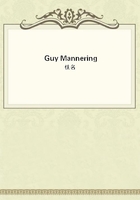
第3章
"Young man," he said, "wherefore so slow on a journey of such importance?"--"I thought," replied the guest, blushing and looking downward, "that there was no harm in travelling slowly, and satisfying my curiosity, providing I could reach your residence by this day; for such was my father's charge."--"You were to blame,"replied the sage, "in lingering, considering that the avenger of blood was pressing on your footsteps. But you are come at last, and we will hope for the best, though the conflict in which you are to be engaged will be found more dreadful, the longer it is postponed. But first, accept of such refreshments as nature requires, to satisfy, but not to pamper, the appetite."The old man led the way into a summer parlour, where a frugal meal was placed on the table. As they sat down to the board, they were joined by a young lady about eighteen years of age, and so lovely, that the sight of her carried off the feelings of the young stranger from the peculiarity and mystery of his own lot, and riveted his attention to everything she did or said. She spoke little, and it was on the most serious subjects. She played on the harpsichord at her father's command, but it was hymns with which she accompanied the instrument. At length, on a sign from the sage, she left the room, turning on the young stranger, as she departed, a look of inexpressible anxiety and interest.
The old man then conducted the youth to his study, and conversed with him upon the most important points of religion, to satisfy himself that he could render a reason for the faith that was in him. During the examination, the youth, in spite of himself, felt his mind occasionally wander, and his recollections go in quest of the beautiful vision who had shared their meal at noon. On such occasions, the Astrologer looked grave, and shook his head at this relaxation of attention; yet, upon the whole, he was pleased with the youth's replies.
At sunset the young man was made to take the bath; and, having done so, he was directed to attire himself in a robe, somewhat like that worn by Armenians, having his long hair combed down on his shoulders, and his neck, hands, and feet bare. In this guise, he was conducted into a remote chamber totally devoid of furniture, excepting a lamp, a chair, and a table, on which lay a Bible.
"Here," said the Astrologer, "I must leave you alone, to pass the most critical period of your life. If you can, by recollection of the great truths of which we have spoken, repel the attacks which will be made on your courage and your principles, you have nothing to apprehend. But the trial will be severe and arduous." His features then assumed a pathetic solemnity, the tears stood in his eyes and his voice falterer with emotion as he said, "Dear child, at whose coming into the world I foresaw this fatal trial, may God give thee grace to support it with firmness!"The young man was left alone; and hardly did he find himself so, when, like a swarm of demons, the recollection of all his sins of omission and commission, rendered even more terrible by the scrupulousness with which he had been educated, rushed on his mind, and, like furies armed with fiery scourges, seemed determined to drive him to despair. As he combated these horrible recollections with distracted feelings, but with a resolved mind, he became aware that his arguments were answered by the sophistry of another, and that the dispute was no longer confined to his own thoughts. The Author of Evil was present in the room with him in bodily shape, and, potent with spirits of a melancholy cast, was impressing upon him the desperation of his state, and urging suicide as the readiest mode to put an end to his sinful career. Amid his errors, the pleasure he had taken in prolonging his journey unnecessarily, and the attention which he had bestowed an the beauty of the fair female, when his thoughts ought to have been dedicated to the religious discourse of her father, were set before him in the darkest colours; and he was treated as one who, having sinned against light, was, therefore, deservedly left a prey to the Prince of Darkness.
As the fated and influential hour rolled on, the terrors of the hateful Presence grew more confounding to the mortal senses of the victim, and the knot of the accursed sophistry became more inextricable in appearance, at least to the prey whom its meshes surrounded. He had not power to explain the assurance of pardon which he continued to assert, or to name the victorious name in which he, trusted. But his faith did not abandon him, though he lacked for a time the power of expressing it. "Say what you will,"was his answer to the Tempter; "I know there is as much betwixt the two boards of this Book as can insure me forgiveness for my transgressions, and safety for my soul." As he spoke, the clock, which announced the lapse of the fatal hour, was heard to strike.
The speech and intellectual powers of the youth were instantly and fully restored; he burst forth into prayer, and expressed, in the most glowing terms, his reliance on the truth, and on the Author, of the gospel. The demon retired, yelling and discomfited, and the old man, entering the apartment, with tears congratulated his guest on his victory in the fated struggle.
The young man was afterwards married to the beautiful maiden, the first sight of whom had made such an impression on him, and they were consigned over at the close of the story to domestic happiness.--So ended John MacKinlay's legend.